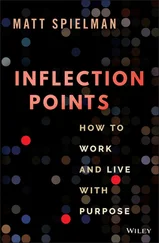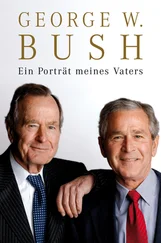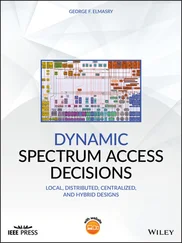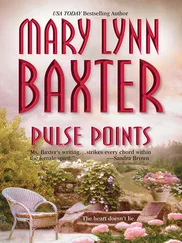Dad was the logical favorite for the 1988 presidential nomination, but the race would not be easy. He had been so loyal to President Reagan that he had done almost nothing to promote himself. He was also battling the infamous Van Buren factor. Not since Martin Van Buren followed Andrew Jackson into the White House in 1836 had a vice president been elected to succeed the president with whom he had served.
Early in his second term, President Reagan generously allowed Dad to use the presidential retreat at Camp David for a meeting with his campaign team. It was thoughtful of Dad to invite all his siblings and children. I enjoyed meeting his team, although I had some reservations. Dad’s top strategist was a young guy named Lee Atwater. A fast-talking, guitar-playing South Carolinian, Lee was considered one of the country’s hottest political consultants. No question he was smart. No doubt he had experience. I wanted to know if he was loyal.
When Dad asked if any of the family members had questions, my hand went up. “Lee, how do we know we can trust you, since your business partners are working for other candidates?” I asked. Jeb chimed in: “If someone throws a grenade at our dad, we expect you to jump on it.” Our tone was tough, but it reflected our love of Dad and our expectations of his staff—an agenda that put the candidate first and personal ambition second.
Lee said he had known Dad at the Republican National Committee, admired him a lot, and wanted him to win. He added that he was planning to sever his conflicting business connections. Yet it was obvious that our doubts had shaken him. Later in the day, he sought out Jeb and me. If we were so worried, he asked, why didn’t one of us move to D.C., help in the campaign, and keep an eye on him and the staff?
The invitation intrigued me. The timing was right. After the downturn in the oil markets, my partners and I had merged our exploration company and found jobs for all the employees. Dad liked the idea, and Laura was willing to give it a try.
At the campaign office in downtown Washington, I had no title. As Dad put it, I already had a good one: son. I focused on fundraising, traveling the country to deliver surrogate speeches, and boosting the morale of volunteers by thanking them on Dad’s behalf. From time to time, I also reminded some high-level staffers that they were on a team to advance George Bush’s election, not their own careers. I learned a valuable lesson about Washington: Proximity to power is empowerment. Having Dad’s ear made me effective.
One of my tasks was to sort through journalists’ requests for profile pieces. When Margaret Warner of Newsweek told us she wanted to do an interview, I recommended that we cooperate. Margaret was talented and seemed willing to write a fair piece. Dad agreed.
Mother called me the morning the magazine hit the newsstands. “Have you seen Newsweek ?” Not yet, I told her. “They called your father a wimp!” she growled.
I quickly tracked down a copy and was greeted by the screaming headline: “Fighting the Wimp Factor.” I couldn’t believe it. The magazine was insinuating that my father, a World War II bomber pilot, was a wimp. I was red-hot. I got Margaret on the phone. She politely asked what I thought of the story. I impolitely told her I thought she was part of a political ambush. She muttered something about her editors being responsible for the cover. I did not mutter. I railed about editors and hung up. From then on, I was suspicious of political journalists and their unseen editors.
After finishing third in Iowa, Dad rallied with a victory in New Hampshire and went on to earn the nomination. His opponent in the general election was the liberal governor of Massachusetts, Michael Dukakis. Dad started the campaign with a great speech at the convention in New Orleans. I was amazed at the power of his words, elegantly written and forcefully delivered. He spoke of a “kinder, gentler” nation, built by the compassion and generosity of the American people—what he called “a thousand points of light.” He outlined a strong policy agenda, including a bold pledge: “Read my lips, no new taxes.”
I was impressed with Dad’s sense of timing. He had managed to navigate perfectly the transition from loyal vice president to candidate. He left the convention leading the polls and charged down the home stretch. On November 8, 1988, the family watched the returns at our friend Dr. Charles Neblett’s house in Houston. I knew Dad had won when Ohio and New Jersey, two critical states, broke his way. By the end of the night, he had carried forty states and 426 electoral votes. George H.W. Bush, the man I admired and adored, was elected the forty-first president of the United States.

Laura and I enjoyed our year and a half in Washington. But when people suggested that I stay in Washington and leverage my contacts, I never considered it. I had zero interest in being a lobbyist or hanger-on in Dad’s administration. Not long after the election, we packed up for the trip back to Texas.
I had another reason for moving home. Near the end of Dad’s campaign, I received an intriguing phone call from my former business partner Bill DeWitt. Bill’s father had owned the Cincinnati Reds and was well connected in the baseball community. He had heard that Eddie Chiles, the principal owner of the Texas Rangers, was looking to sell the team. Would I be interested in buying? I almost jumped out of my chair. Owning a baseball team would be a dream come true. I was determined to make it happen.
My strategy was to make myself the buyer of choice. Laura and I moved to Dallas, and I visited Eddie and his wife Fran frequently. I promised to be a good steward of the franchise he loved. He said, “You’ve got a great name and a lot of potential. I’d love to sell to you, son, but you don’t have any money.”
I went to work lining up potential investors, mostly friends across the country. When Commissioner Peter Ueberroth argued that we needed more local owners, I went to see a highly successful Fort Worth investor, Richard Rainwater. I had courted Richard before and he had turned me down. This time he was receptive. Richard agreed to raise half the money for the franchise, so long as I raised the other half and agreed to make his friend Rusty Rose co-managing partner.
I went to meet Rusty at Brook Hollow Golf Club in Dallas. He seemed like a shy guy. He had never followed baseball, but he was great with finances. We talked about him being the inside guy who dealt with the numbers, and me being the outside guy who dealt with the public.
Shortly thereafter, Laura and I were at a black-tie charity function. Our plans for the team had leaked out, and a casual acquaintance pulled me aside and whispered: “Do you know that Rusty Rose is crazy? You’d better watch out.” At first I blew this off as mindless chatter. Then I fretted. What did “crazy” mean?
I called Richard and told him what I had heard. He suggested that I ask Rusty myself. That would be a little awkward. I barely knew the guy, and I was supposed to question his mental stability? I saw Rusty at a meeting that afternoon. As soon as I entered the conference room, he walked over to me and said, “I understand you have a problem with my mental state. I see a shrink. I have been sick. What of it?”
It turns out Rusty was not crazy. This was his awkward way of laying out the truth, which was that he suffered from a chemical imbalance that, if not properly treated, could drive his bright mind toward anxiety. I felt so small. I apologized.
Rusty and I went on to build a great friendship. He helped me to understand how depression, an illness I later learned had also afflicted Mother for a time in her life, could be managed with proper care. Two decades later in the Oval Office, I stood with Senators Pete Domenici and Ted Kennedy and signed a bill mandating that insurance companies cover treatment for patients with mental illness. As I did, I thought of my friend Rusty Rose.
Читать дальше












